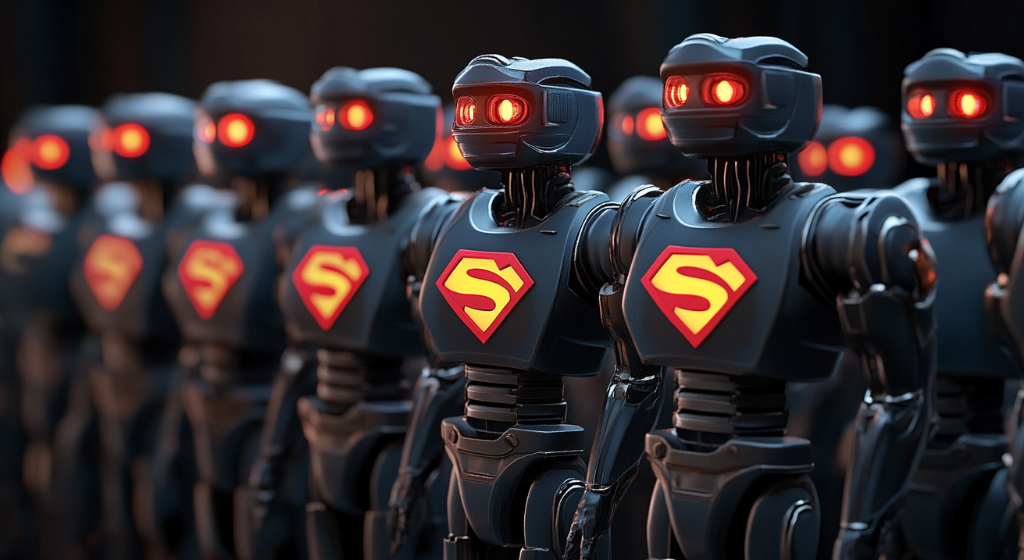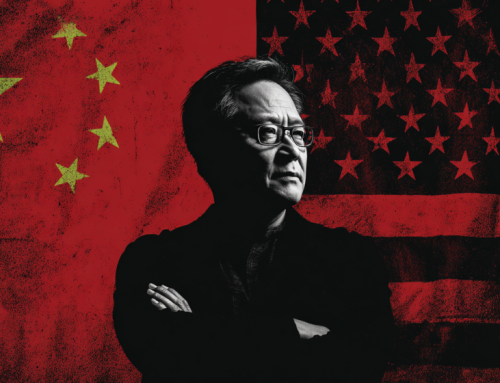
OpenAI and other industry leaders are on the brink of unveiling AI “super-agents” with Ph.D.-level capabilities, poised to revolutionize industries by tackling complex tasks while sparking debates over workforce disruption and reliability. (Source: Image by RR)
Generative AI Progress Raises Both Optimism, Concerns about Reliability and Workforce Impact
Generative AI is on the brink of a transformative leap, with industry insiders anticipating an imminent announcement from a leading company, likely OpenAI, about “super-agents” capable of performing Ph.D.-level tasks with precision and creativity. OpenAI CEO Sam Altman has dubbed this era “The Intelligence Age,” emphasizing the profound implications of these advancements, including their potential to replace mid-level software engineers and other skilled roles. Tech leaders like Meta’s Mark Zuckerberg have echoed this, predicting that by 2025, AI will be capable of generating and managing code at a scale previously reserved for human engineers. While AI’s current applications remain limited, this next-level breakthrough promises to shift AI from an aspirational tool to a genuine replacement for human labor, fundamentally altering workflows across industries.
The development of these super-agents reflects recent rapid progress by leading AI companies, which reportedly exceeds even their ambitious projections. OpenAI, for instance, released an “Economic Blueprint” outlining how AI could catalyze a reindustrialization of the United States with the right regulatory and infrastructural investments. This optimism, as noted in axios.com, is tempered by concerns from AI insiders and national security figures like Jake Sullivan, who warn that the coming years will determine whether AI advancements lead to unprecedented productivity or catastrophic consequences. Despite the hype, challenges remain, particularly in addressing AI’s reliability issues and tendency for “hallucinations,” which could undermine trust in autonomous agents designed to handle complex, multi-layered tasks.
Super-agents represent a significant evolution in AI, capable of independently pursuing goals such as designing new software, conducting comprehensive financial analyses, or managing logistical operations with remarkable efficiency. By synthesizing vast amounts of data and delivering high-quality outcomes, these agents are poised to revolutionize sectors like healthcare, education, and scientific research, driving productivity and enabling groundbreaking innovations. However, their success hinges on overcoming trust and reliability issues, as users will need assurance that these autonomous systems can execute tasks accurately and responsibly without human oversight.
The rise of super-agents coincides with significant political and economic shifts, including the potential introduction of AI-focused infrastructure legislation to bolster U.S. competitiveness in data, chips, and energy. At the same time, critics warn of the disruptive effects on the workforce, particularly for entry-level and mid-level roles. Figures like Steve Bannon have voiced concerns about job displacement, emphasizing the need for careful management of AI’s societal impact. As these dual tectonic shifts unfold, the focus will be on ensuring that AI advances responsibly while mitigating its potential to exacerbate economic inequality and workforce disruption.
read more at axios.com







Leave A Comment